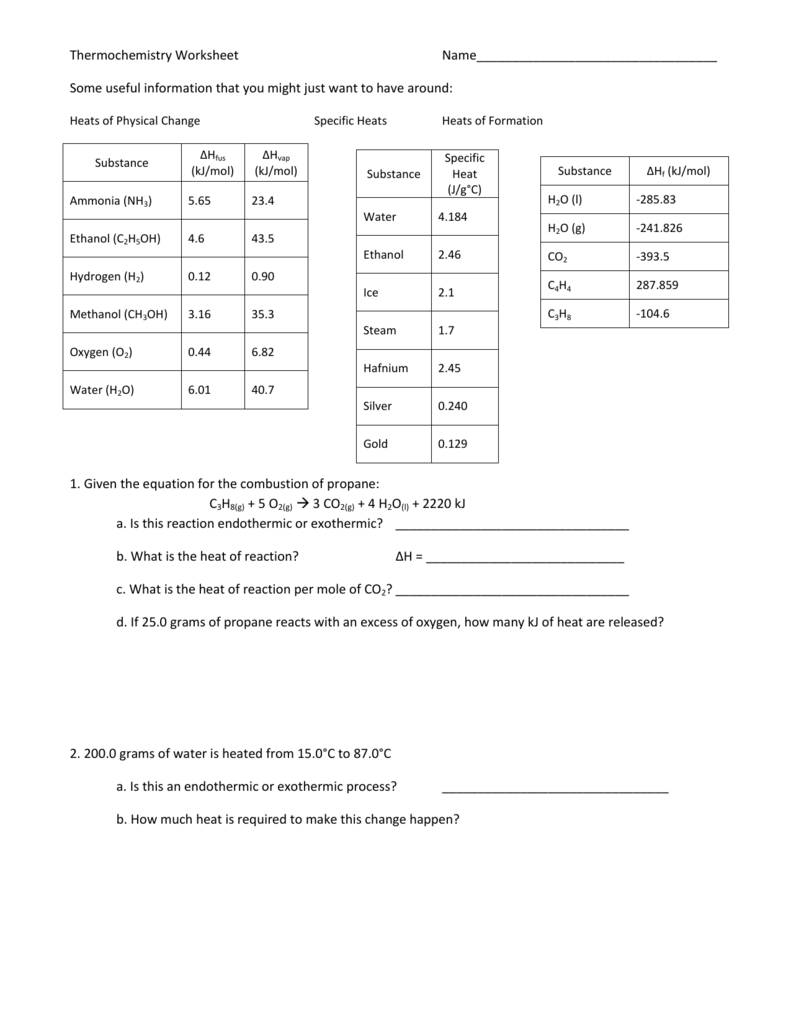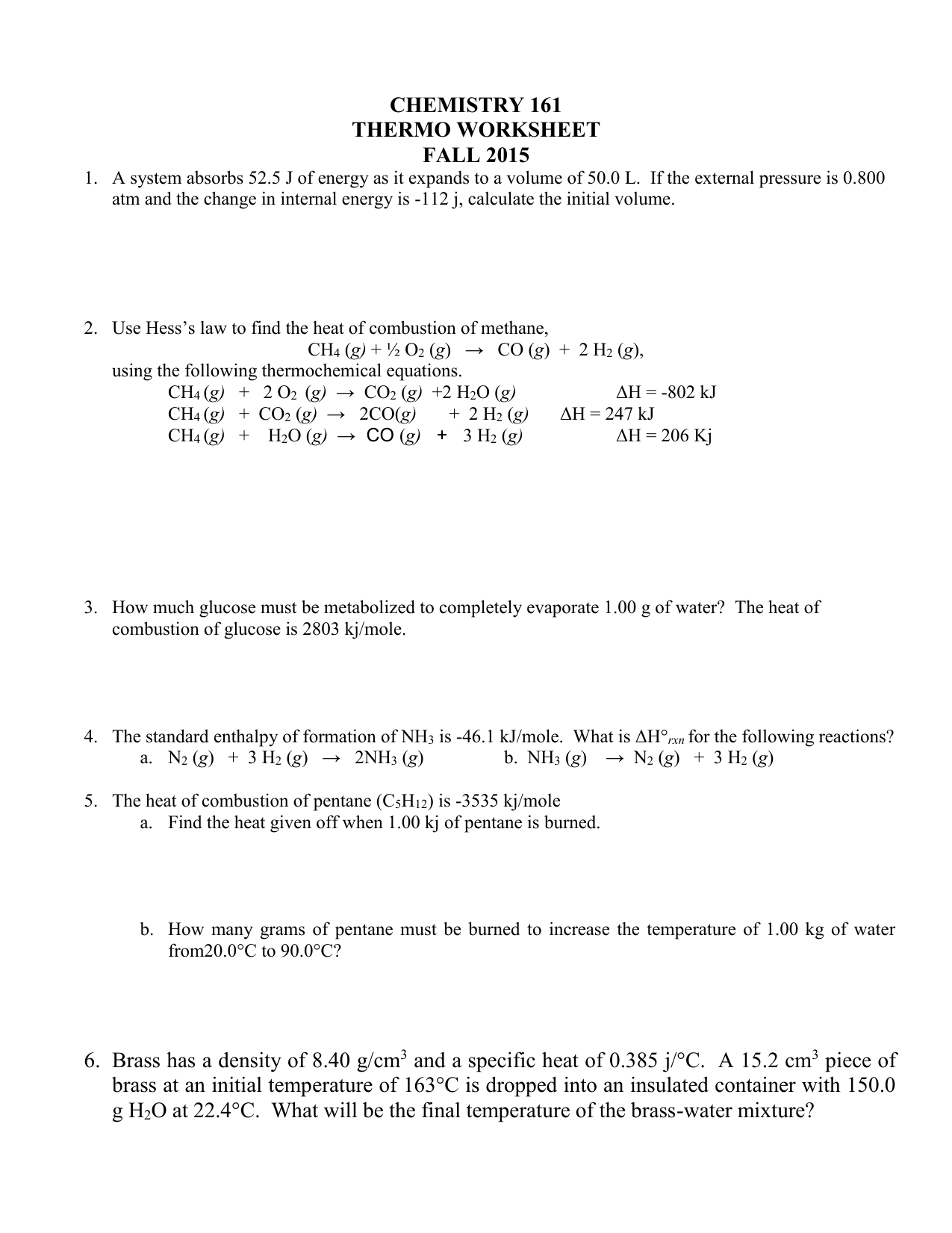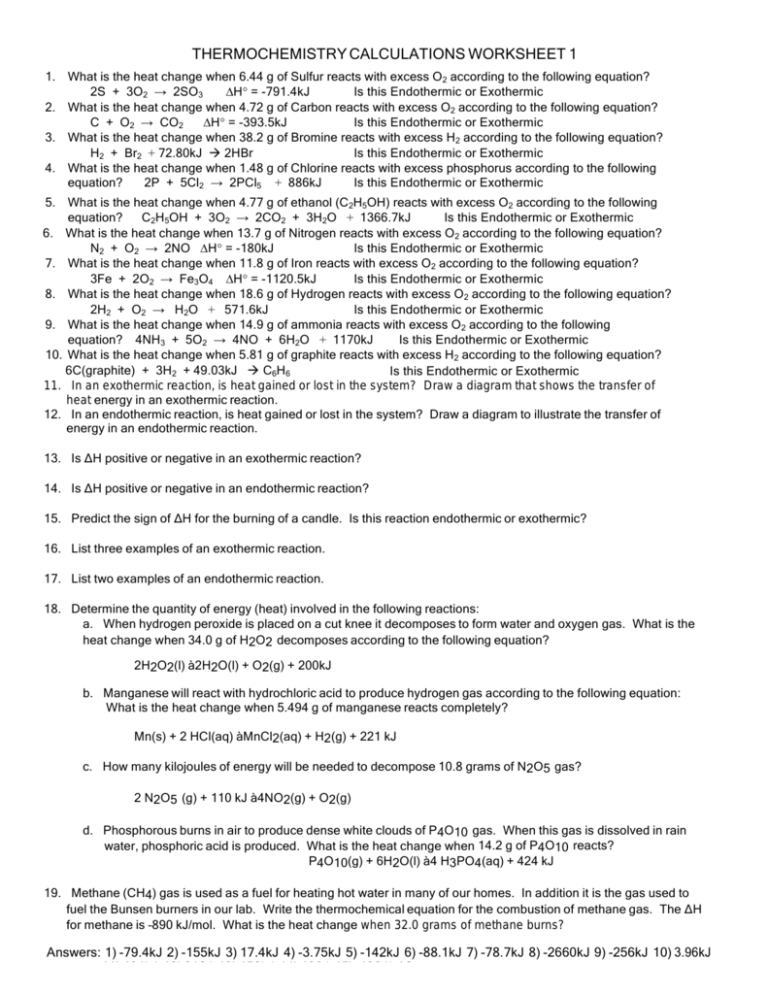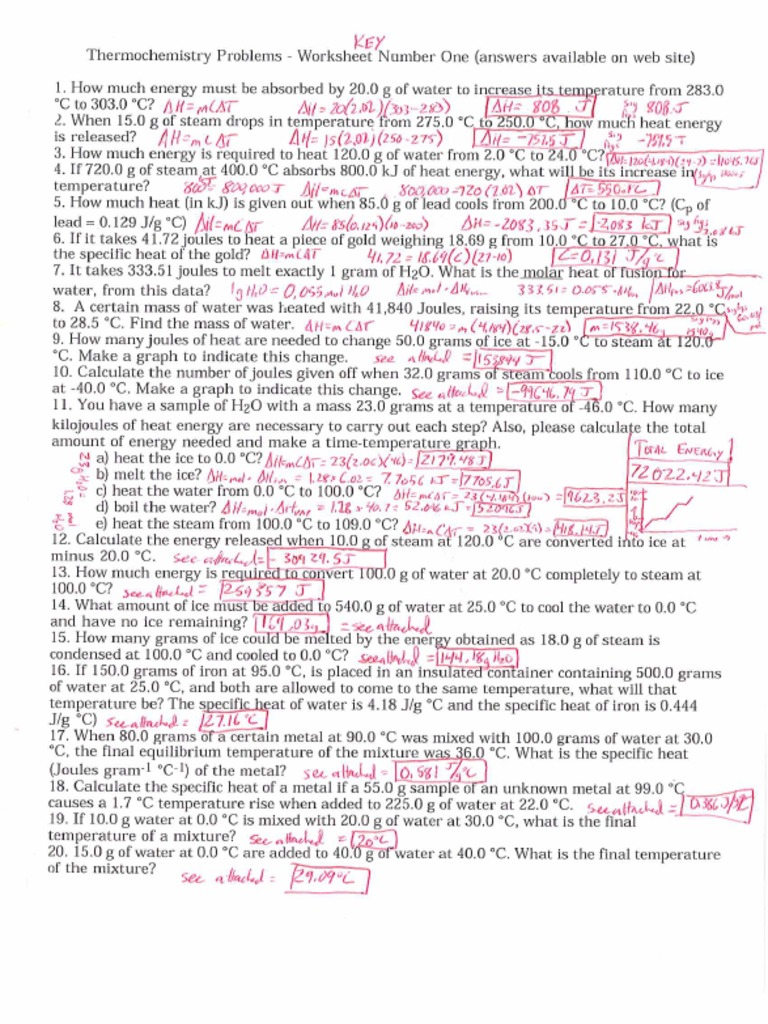Thermochemistry Calculations Worksheet - You should try to answer the questions without referring to your textbook. Thermochemical equations and stoichiometry worksheet purpose: 2) if 1 calorie (nutritional “calorie”) =. Worksheets are thermochemistry, thermochemistry calculations work 1, ap. Work in groups on these problems. (include a definition and it’s symbol). If you get stuck, try. 1) how many calories are required to raise the temperature of 75.0 g of water from 20.0°c to 50.0°c? Conceptual questions 1) draw and label a diagram of a calorimeter with all of its. To reinforce your understanding of the stoichiometry of.
(include a definition and it’s symbol). Worksheets are thermochemistry, thermochemistry calculations work 1, ap. Work in groups on these problems. If you get stuck, try. To reinforce your understanding of the stoichiometry of. 1) how many calories are required to raise the temperature of 75.0 g of water from 20.0°c to 50.0°c? 2) if 1 calorie (nutritional “calorie”) =. Conceptual questions 1) draw and label a diagram of a calorimeter with all of its. You should try to answer the questions without referring to your textbook. Thermochemical equations and stoichiometry worksheet purpose:
If you get stuck, try. Conceptual questions 1) draw and label a diagram of a calorimeter with all of its. You should try to answer the questions without referring to your textbook. Thermochemical equations and stoichiometry worksheet purpose: (include a definition and it’s symbol). Work in groups on these problems. To reinforce your understanding of the stoichiometry of. 2) if 1 calorie (nutritional “calorie”) =. Worksheets are thermochemistry, thermochemistry calculations work 1, ap. 1) how many calories are required to raise the temperature of 75.0 g of water from 20.0°c to 50.0°c?
Ultimate Thermochemistry Worksheet
1) how many calories are required to raise the temperature of 75.0 g of water from 20.0°c to 50.0°c? To reinforce your understanding of the stoichiometry of. Conceptual questions 1) draw and label a diagram of a calorimeter with all of its. Worksheets are thermochemistry, thermochemistry calculations work 1, ap. You should try to answer the questions without referring to.
Thermochemical Equations Worksheets
Conceptual questions 1) draw and label a diagram of a calorimeter with all of its. Worksheets are thermochemistry, thermochemistry calculations work 1, ap. You should try to answer the questions without referring to your textbook. To reinforce your understanding of the stoichiometry of. If you get stuck, try.
Thermochemistry worksheet 1
You should try to answer the questions without referring to your textbook. To reinforce your understanding of the stoichiometry of. Conceptual questions 1) draw and label a diagram of a calorimeter with all of its. Work in groups on these problems. Worksheets are thermochemistry, thermochemistry calculations work 1, ap.
Writing "Thermochemical" Equations Worksheet for 9th Higher Ed
2) if 1 calorie (nutritional “calorie”) =. You should try to answer the questions without referring to your textbook. If you get stuck, try. Conceptual questions 1) draw and label a diagram of a calorimeter with all of its. Thermochemical equations and stoichiometry worksheet purpose:
thermochemistry calculations worksheet 1
1) how many calories are required to raise the temperature of 75.0 g of water from 20.0°c to 50.0°c? Worksheets are thermochemistry, thermochemistry calculations work 1, ap. Conceptual questions 1) draw and label a diagram of a calorimeter with all of its. To reinforce your understanding of the stoichiometry of. You should try to answer the questions without referring to.
Thermochemistry Worksheet CHEM155 Studocu
If you get stuck, try. 1) how many calories are required to raise the temperature of 75.0 g of water from 20.0°c to 50.0°c? Thermochemical equations and stoichiometry worksheet purpose: (include a definition and it’s symbol). To reinforce your understanding of the stoichiometry of.
Thermochemical Equations Worksheets
You should try to answer the questions without referring to your textbook. 1) how many calories are required to raise the temperature of 75.0 g of water from 20.0°c to 50.0°c? Worksheets are thermochemistry, thermochemistry calculations work 1, ap. To reinforce your understanding of the stoichiometry of. If you get stuck, try.
Thermochemistry Equation Sheet
If you get stuck, try. 1) how many calories are required to raise the temperature of 75.0 g of water from 20.0°c to 50.0°c? 2) if 1 calorie (nutritional “calorie”) =. Thermochemical equations and stoichiometry worksheet purpose: Worksheets are thermochemistry, thermochemistry calculations work 1, ap.
Thermochemistry Worksheet With Answers Pdf
1) how many calories are required to raise the temperature of 75.0 g of water from 20.0°c to 50.0°c? To reinforce your understanding of the stoichiometry of. Conceptual questions 1) draw and label a diagram of a calorimeter with all of its. You should try to answer the questions without referring to your textbook. 2) if 1 calorie (nutritional “calorie”).
SOLUTION STEM Chemistry Thermochemical Equations Worksheet Studypool
2) if 1 calorie (nutritional “calorie”) =. To reinforce your understanding of the stoichiometry of. Thermochemical equations and stoichiometry worksheet purpose: Worksheets are thermochemistry, thermochemistry calculations work 1, ap. If you get stuck, try.
Thermochemical Equations And Stoichiometry Worksheet Purpose:
To reinforce your understanding of the stoichiometry of. 2) if 1 calorie (nutritional “calorie”) =. Work in groups on these problems. (include a definition and it’s symbol).
1) How Many Calories Are Required To Raise The Temperature Of 75.0 G Of Water From 20.0°C To 50.0°C?
You should try to answer the questions without referring to your textbook. Worksheets are thermochemistry, thermochemistry calculations work 1, ap. If you get stuck, try. Conceptual questions 1) draw and label a diagram of a calorimeter with all of its.









